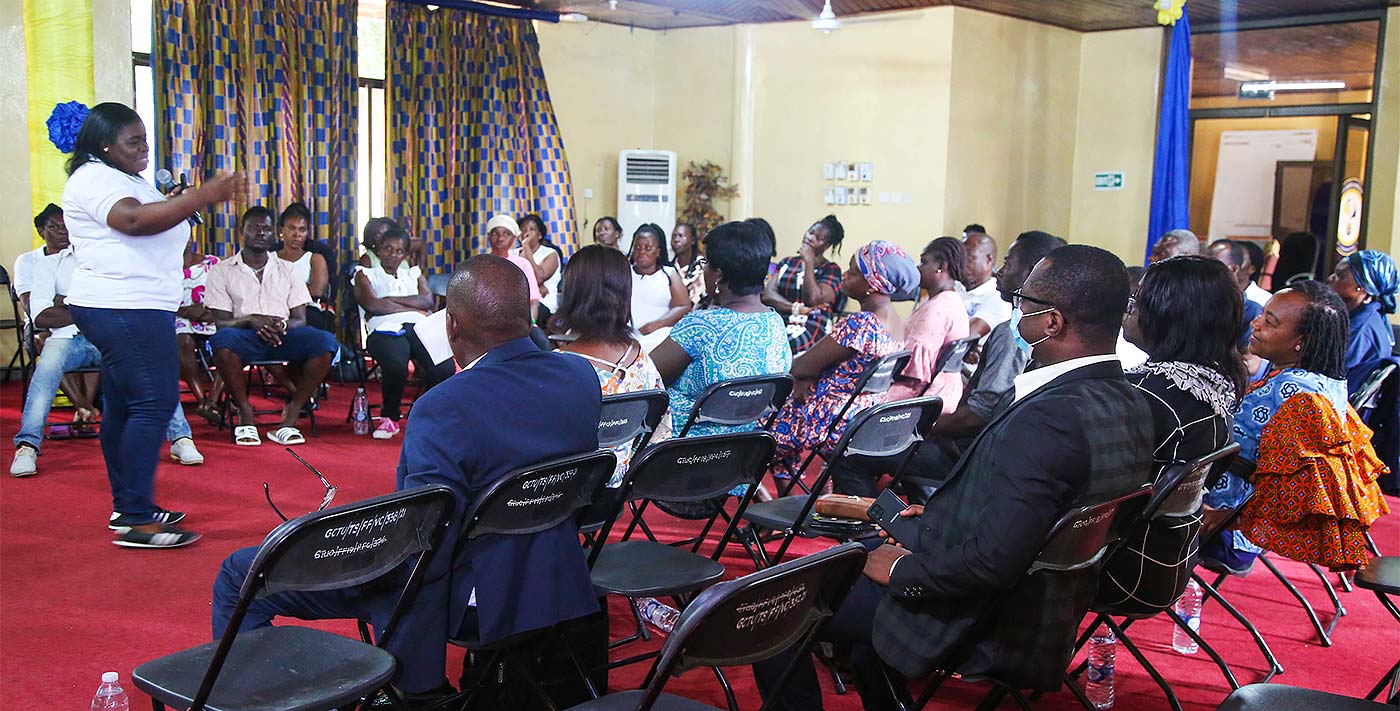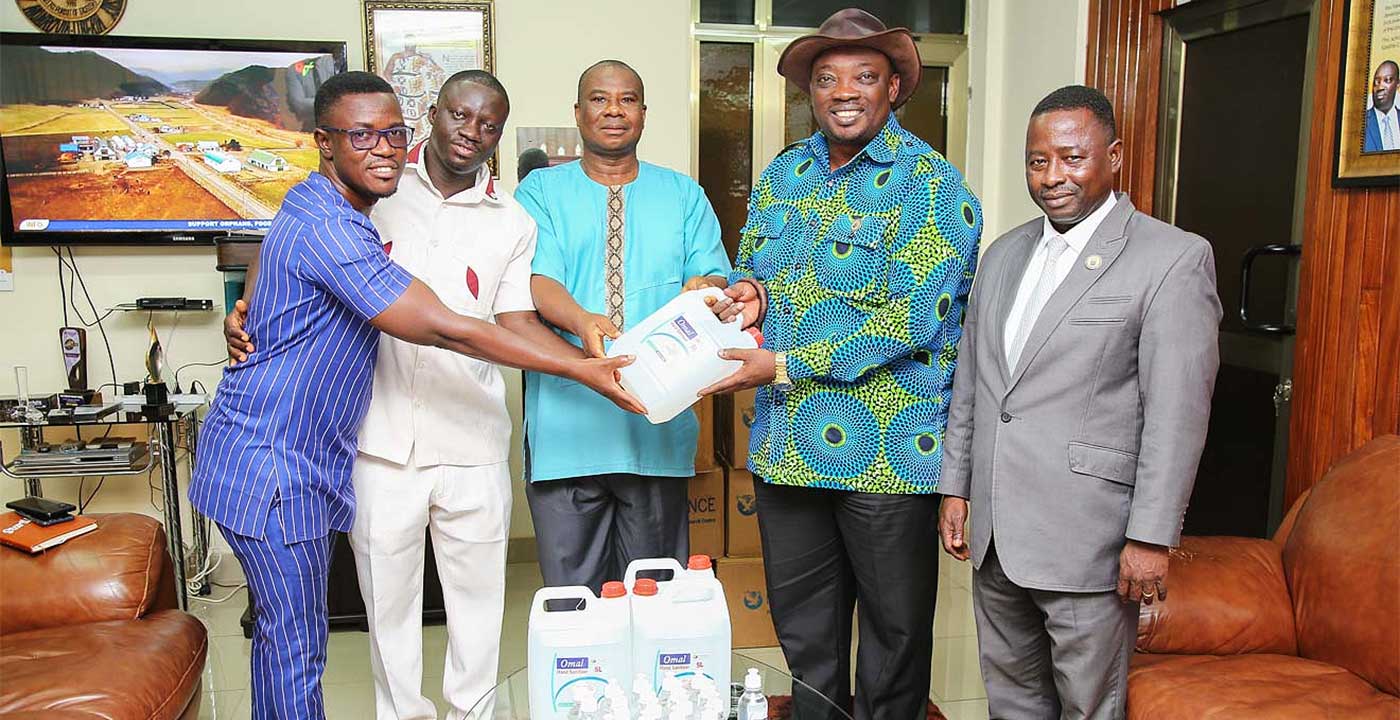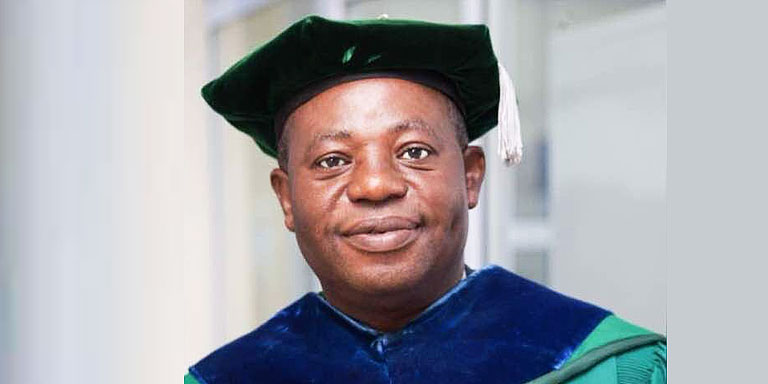
GCTU security guards have undergone a two-day intensive training workshop in first aid, Cardiopulmonary Resuscitation (CPR) and firefighting skills, held from 19th to 20th June, 2025, at the Eva Von Hirsch Auditorium.
The workshop, which was a collaborative effort between the Directorate of Human Resource and Organizational Development (DHROD) and the Security Unit, was aimed at enhancing internal security to respond to medical emergencies, administer basic first aid and handle fire-related emergencies.
Speaking at the event, the Director of DHROD, Dr. Emmanuel Adjepong, emphasized that the workshop demonstrates GCTU’s proactive approach to ensuring safe and secure environment. “There is a need to build the capacity of security personnel to handle emergency cases from a professional point of view,” Dr. Adjepong remarked. He further noted that the Directorate’s role in coordinating training programmes, such as the first aid and firefighting training, ensures that staff acquire the necessary skills to perform their duties efficiently.

In his presentation, the Resource Person, WO 1 Francis Addison of the Medical Emergency Unit of the 37 Military Hospital, discussed “First Aid and Cardiopulmonary Resuscitation (CPR).” He explained that CPR is a life-saving technique that is useful in many emergency situations where someone’s breathing or heartbeat ceases. WO 1 Addison highlighted the purpose of CPR including:
- Restore blood circulation – chest compression helps in pumping blood throughout the body.
- Restore breathing – rescue breaths help oxygenate the blood and brain.
-
Delay tissue death – the onset of tissue death due to lack of oxygen is delayed during CPR.

According to him, there are steps involved in CPR, namely, chest compression, airway and rescue breath.
Emphasizing on first aid, WO 1 Addison defined it as the first and immediate assistance given to any person with a minor or major illness until medical services arrive. He outlined reasons for providing first aid, including:
- To prevent the condition from getting worse
- To preserve life
- To promote recovery
- To Provide comfort and relief

An Officer of the Public Relations Department, Ghana Fire Service, SO1 Michael Walker Okai, provided valuable insights into “Firefighting.” He explained that fire is a chemical combustion involving fuel, heat and oxygen in their right quantities giving off light and heat. He added that heat, fuel and oxygen are components of fire and elaborated that fire can be classified based on the type of fuel, highlighting on the four main classes, such as, Class A, B, C and D. Mr. Okai gave insights into three methods of extinguishing fires, including, cooling, smothering and starving.

In his closing remarks, the Director of DHROD, Dr. Adjepong, on behalf of the Vice-Chancellor, Prof. Emmanuel Ohene Afoakwa and Management expressed gratitude to the facilitators and the participants for attending the training, urging them to utilize the knowledge gained effectively.

The facilitators took participants through practical experiences in the disciplines in which they were trained to build their confidence in handling such emergencies.
The Acting Head of GCTU’s Security, Flt.Sgt. (Rtd.) Emmanuel Hollomah, a Certified Security Investigator (CSI) ® whose unit is responsible for internal campus security was instrumental in organizing the training workshop.










